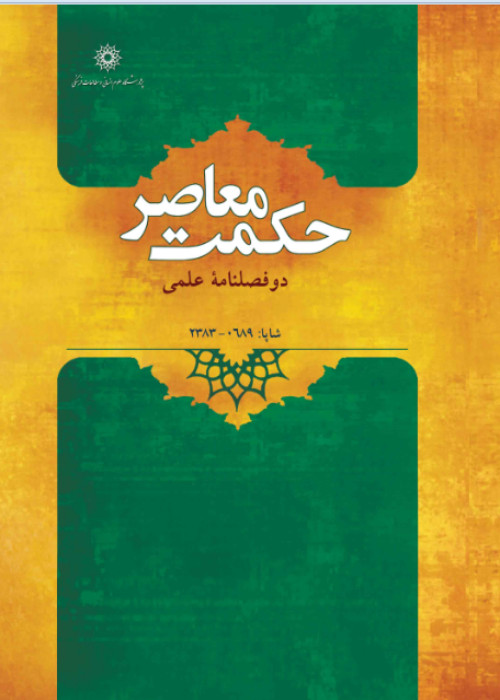Fakhr al-Din al-Razi’s Attitude toward Reasoning: Interpreting his last Will
There is a will which is attributed to Razi which have been a controversial topic from ancient times until now. Preferring Qur’anic method to theology and philosophy, some scholars, such as Ibn Emad Hanbali and Fathalla Kholeif, think of that as a kind of repentance from rational discussion. There is a statement which is apparently narrate by Ibn Salah, quote Razi’s word that he regretted studying theology and philosophy; that he said: “I regretted studying theology (Kalam)” and then he wept. This quote support former interpreting. We proved, in this paper, that that interpretation is not authentic and the meaning and purpose of it is different; thus it is not a kind of repent, but rather it is a moderate rationalism (opposite to both classical rationalism and fideism), which he held in his life and could be found in his works. And, it is showed that what is quoted from Ibn Salah is not reliable; because could not be found in Ibn Salah’s works, perhaps it is a transited saying from him. Those writers, who quoted from Ibn Salah, a few centuries after him; thus it is not acceptable. Therefore, this narration is not authentic. This story is important, because it targeted reasoning in Fakhr system of thoughts; if it is true, then it shows that Kalam is not in harmony with real, orthodox Islam, as those who mentioned it maintain. But if not true, it shows that Razi did not believe that theology (Kalam) is not a real part of Islamic sciences. As a matter of historic facts, there is not an authentic source for the story. Therefore, it seems that someone made it up to justify their fanatic, extremist, fundamental interpretation of Islam, in which they have not tolerated any kind of reasoning, including Islamic theology (Kalam), the field of study that Razi well represent. For Ash’ari scholars like Fakhr Razi, reasoning is a useful, discursive tool to assess and study claims and beliefs, and particularly to defend religious doctrines. However, their attitude toward reasoning and intellect (Aql) itself is far from their Mu’tazali opponents. While Mutazalis see reasoning as a source for inferring truth, their Ash’ari opponents see it as a tool to assess claims, interpreting holy texts, including Qur’anic verses. On the other hand, for Fakhr’s part, in the will we could find him in a mediocre rationality position. He stated that what he discussed in his life was not of stubbornness, carelessness or recklessness, but just for the sake of reason. In other works he can be seen committed to Quranic verses and holy texts, beyond reasoning as a source superior to the text; so to speak, he only used reasoning for understanding; and that he put the “Quranic method” on the top of the list, do not imply that he denied reasoning and respective fields of study totally. But a few figures, like Ibn Emad al-Hanbali or Kholief, saw it as a kind of repentance of discursive methods, which is impossible to justify such a position. As to Razi we could see that he had held such a position in his whole career, as he had scrutinized philosophical doctrines, assessing every claim, and always put the Quran on the top of everything else. Therefore, to say Razi repented Kalam is not a valid, authentic conclusion.
- حق عضویت دریافتی صرف حمایت از نشریات عضو و نگهداری، تکمیل و توسعه مگیران میشود.
- پرداخت حق اشتراک و دانلود مقالات اجازه بازنشر آن در سایر رسانههای چاپی و دیجیتال را به کاربر نمیدهد.



